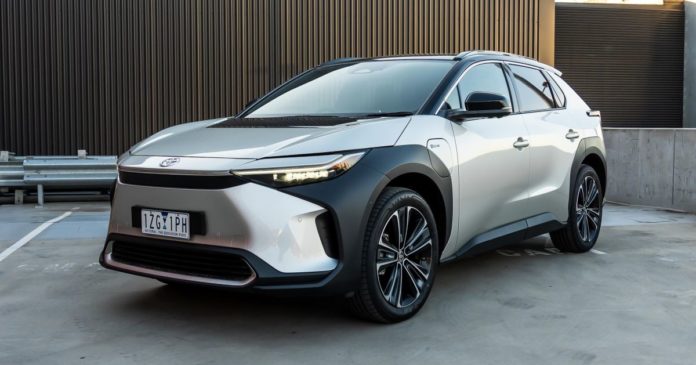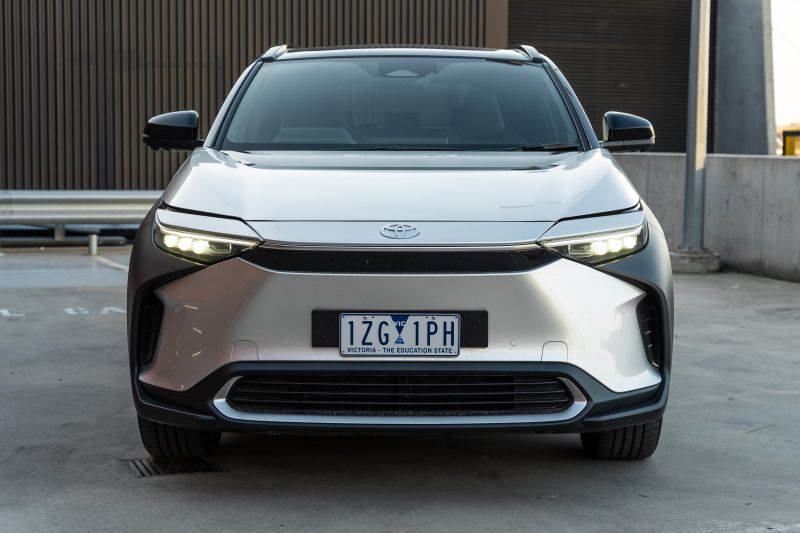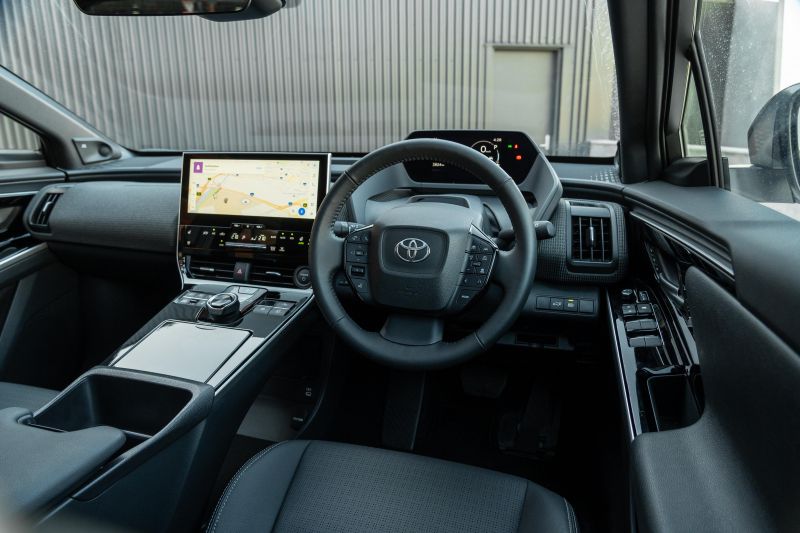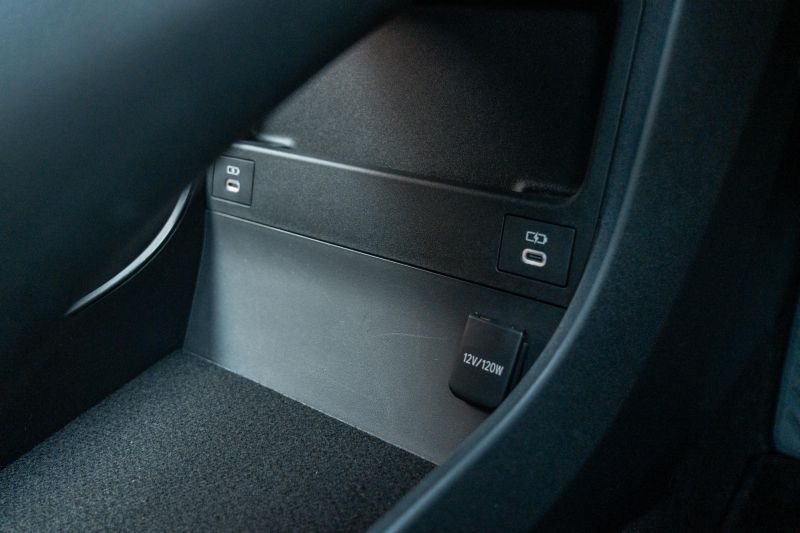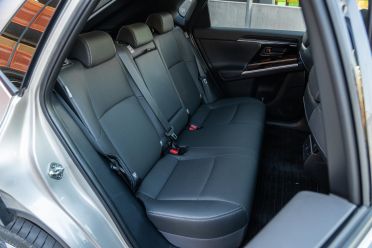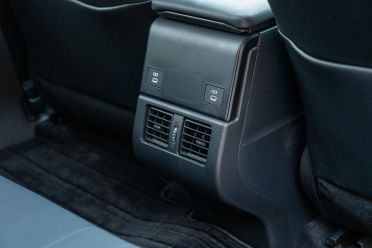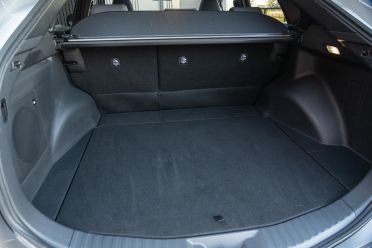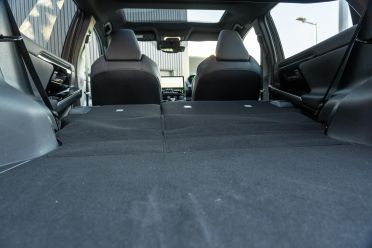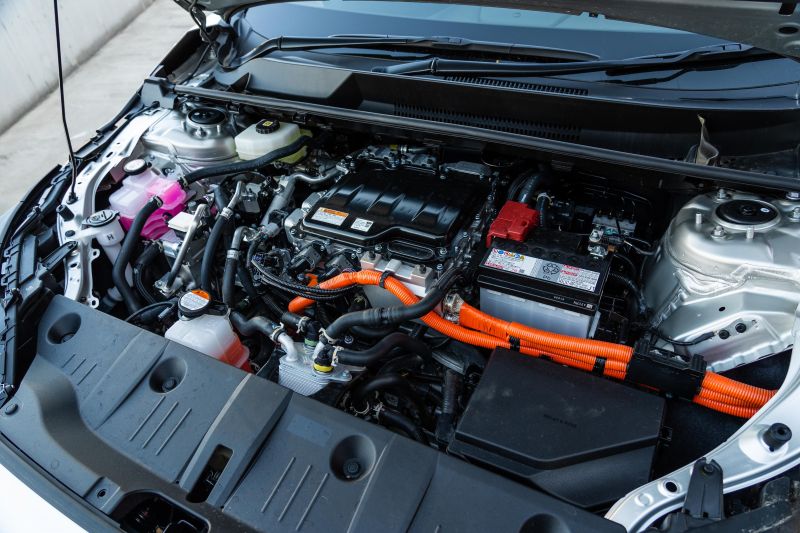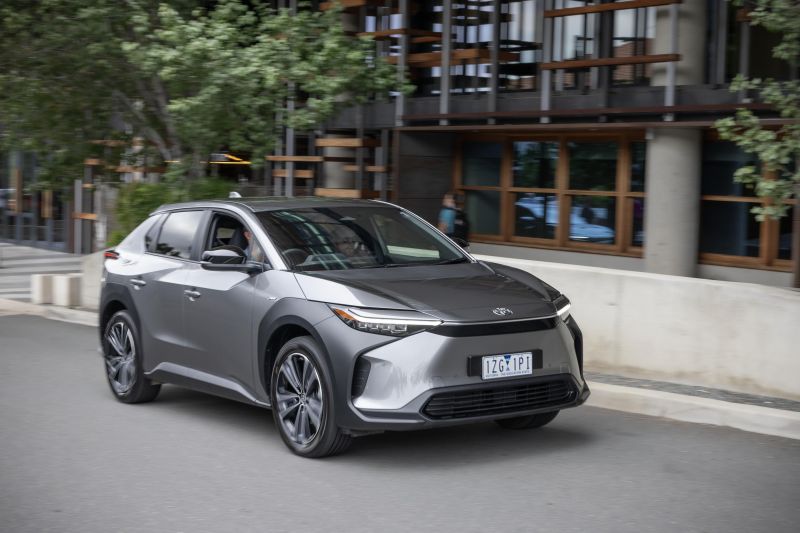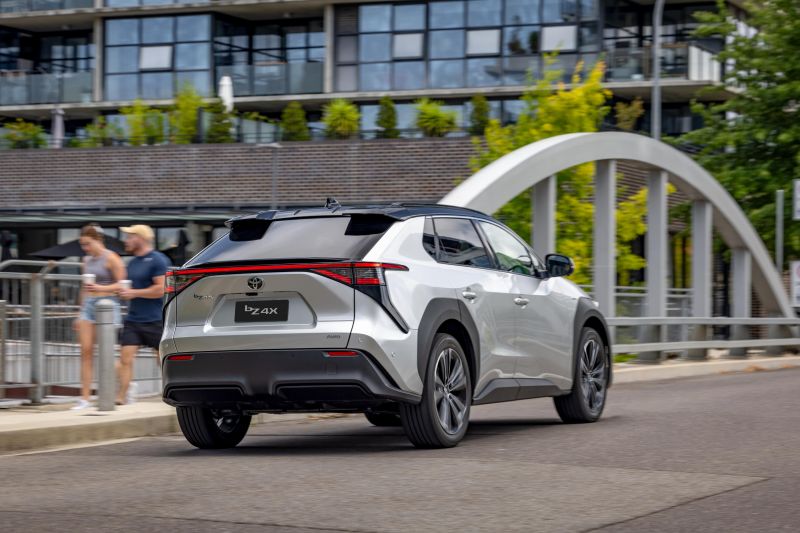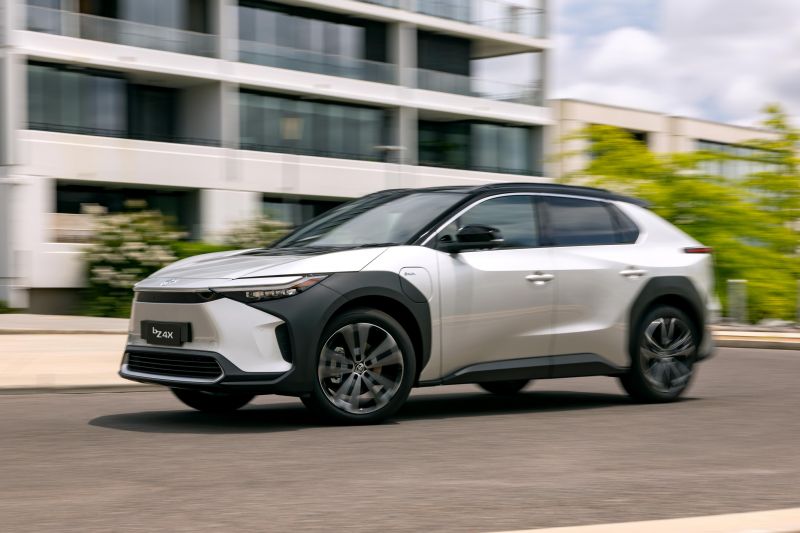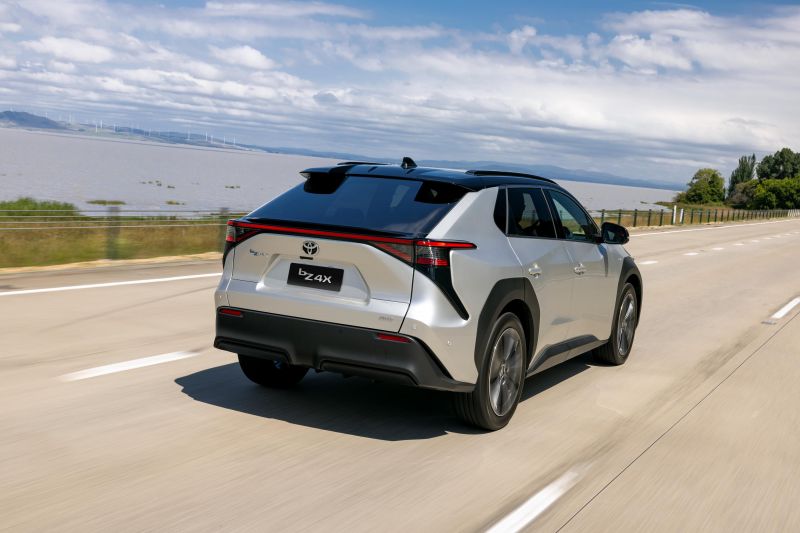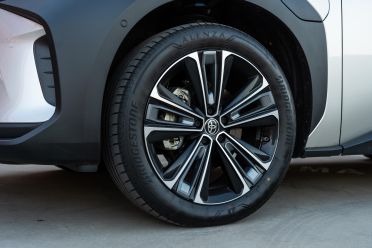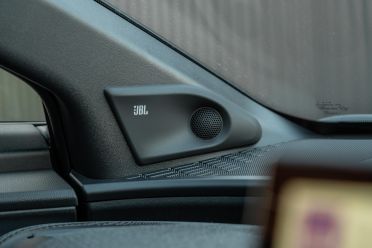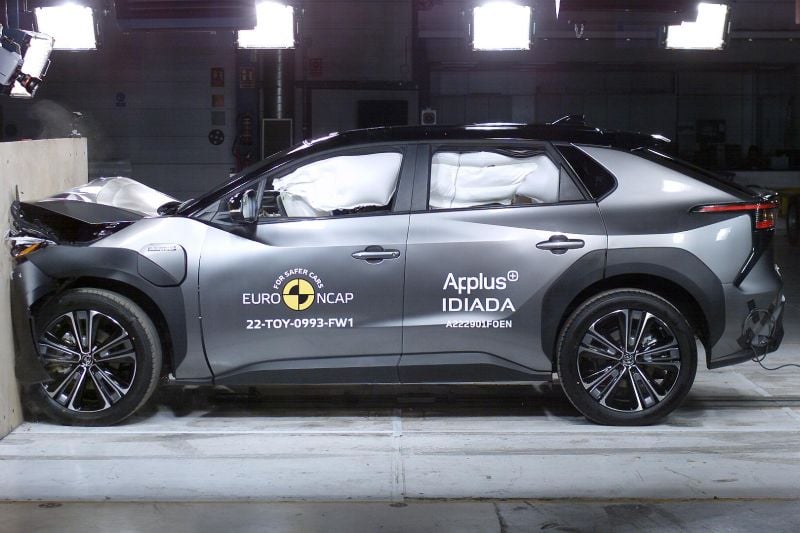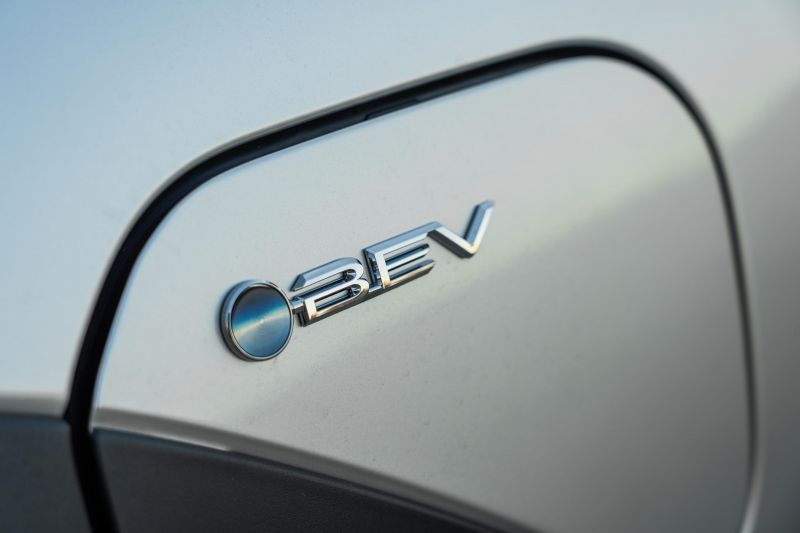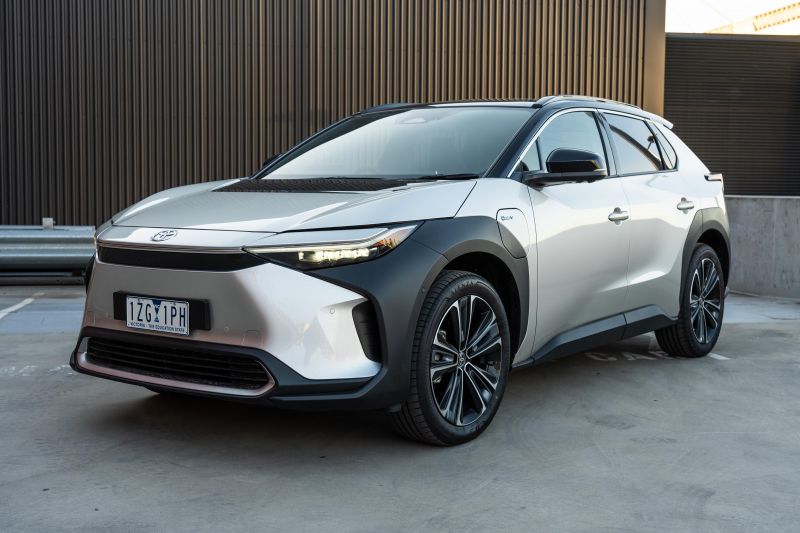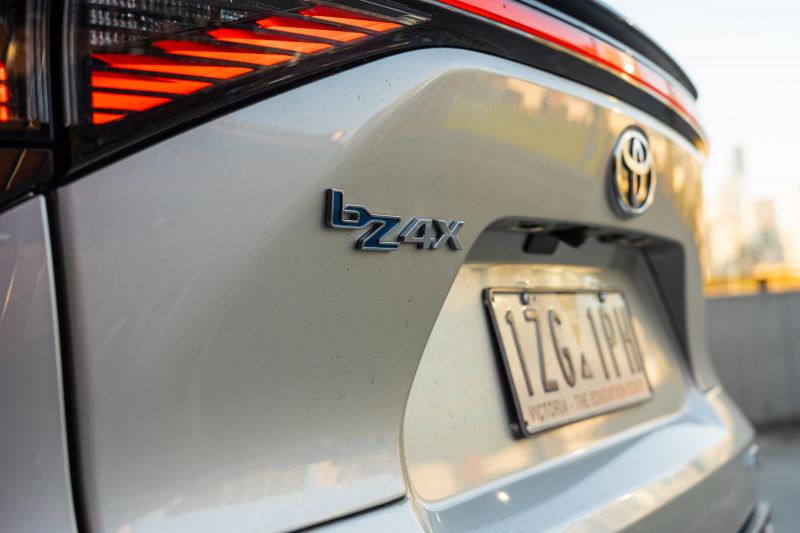There’s fashionably late, then there’s just plain late – and the Toyota bZ4X was plain late for Australia.
The Japanese giant took its sweet time getting its first electric vehicle (EV) to Australia, with multiple delays caused by overseas quality niggles.
Finally in 2024 it landed, giving Toyota-loving Australians an alternative to the Tesla Model Y. It’s also a similar size to the top-selling RAV4 Hybrid. Recipe for success, right?
Well, Toyota Australia has been pretty candid about its aspirations and forecasts for the bZ4X. Much like the original Prius 20-something years ago, the bZ4X is a little niche – and premium – in its positioning.
As such, the country’s top-selling vehicle brand is forecasting a modest 1500 sales of its new EV in its first year.
Tesla registered 28,769 new Model Ys in 2023, so clearly Toyota isn’t aiming for a sales stronghold like it has in other segments. Instead, it’s dipping its toes in to gauge the response.
The 2024 Toyota bZ4X AWD on test is the most expensive version, priced from a cool $74,900 plus on-road costs. That puts it right in contention with the Tesla Model Y Long Range, among other electric crossovers.
It has been met with mixed reviews overseas, but early impressions from my colleagues have been positive. I was pretty keen to have the keys thrown to me so I could get my first taste.
Is it worth a look if you’re shopping for a Model Y, Ioniq 5 or EV6?
How does the Toyota bZ4X compare?
View a detailed breakdown of the Toyota bZ4X against similarly sized vehicles.

Toyota
bZ4X
How much does the Toyota bZ4X cost?
There are two variants on sale in Australia – on test we have the dual-motor bZ4X AWD.
| Model Variant | Price excluding on-roads |
|---|---|
| 2024 Toyota bZ4X FWD | $66,000 |
| 2024 Toyota bZ4X AWD | $74,900 |
To see how the Toyota bZ4X lines up against the competition, check out our comparison tool.
What is the Toyota bZ4X like on the inside?
While not conventional Toyota per se, the bZ4X is a lot more conventional than, say, a Model Y.
It has an instrument cluster, traditional switchgear and stalks, and everything is pretty much where you’d expect it to be – but there’s some fresh takes on tradition at play.
The steering wheel and cluster array are tiered like you get in a Peugeot, meaning you need to have the wheel low to stop the rim obstructing the digitised cluster. I could get it to work, but not everyone can.
Build quality is typical Toyota solid too. There’s a nice ratio of soft-touch surfaces and contrasting textures, like piano black and the fabric trim on the dashboard – but the former is a nightmare for fingerprints.
There’s a combination of physical and touch capacitive switchgear throughout the cabin, and it’s mostly familiar from other new Toyota products.
Front occupants are treated to nicely supportive SofTex leatherette-trimmed chairs that are electrically adjustable, and are both heated and ventilated. Memory presets are a nice touch if you have multiple main drivers.
Sitting atop the dash (but integrated into the upright centre stack) is the 12.3-inch touchscreen, which is running the latest Toyota interface that is shared with many new Lexus products as well.
It’s nothing super flashy in terms of form or function, but the unit offers net-based capability and functions in addition to embedded navigation, wireless Apple CarPlay and Android Auto, and DAB radio. It covers all bases, and just works.
I’m not a huge fan of the quirky shift-by-wire controller that requires a push and a turn to engage Drive or Reverse. It’s fiddly, and can sometimes feel a little flimsy in operation.
At least there’s a simple button for P, and the electronic parking brake automatically engages or disengages when you put it in Park or engage Drive or Reverse.
Storage is pretty handy, too. There’s a big cubby under the centre console bridge that fits odds and ends or a small bag, complete with USB-C ports and a 12V outlet.
There are also decent door bins with bottle holders, as well as a lidded cubby with a slot to hide your smartphone out of sight. It’ll keep it charged courtesy of the wireless phone charge pad.
The second row is surprisingly good. At 6’1 I had good head, leg- and knee room even behind my own driving position.
You do get a bit of that knees-up feeling as the floor-mounted battery pack raises the floor somewhat, and the panoramic sunroof might make head room cosy for anyone taller than me.
It’s otherwise pretty good for amenities, with directional air vents behind the console, USB-C charge ports, map pockets, a fold-down centre armrest with cupholders, as well as bottle holders in the doors.
You also get the requisite ISOFIX and top tether points for child seats, though there’s no rear heated seats like you might find on some other SUVs at this price point.
Claimed boot space is 452 litres in the FWD. That’s down on the 580 litres on offer in the RAV4 (which also has a spare wheel), and less than the 560 litres on offer in the similarly sized Hyundai Ioniq 5.
With that said, the floor is low and flat, and there’s storage beneath it for the sliding luggage cover.
What’s under the bonnet?
Both single- and dual-motor versions of the bZ4X are available in Australia – here we have the dual-motor AWD one.
| Model | Toyota bZ4X AWD |
|---|---|
| Electric motor | Dual-motor electric |
| Power | Front: 80kW Rear: 80kW Total: 160kW |
| Engine torque | Front: 168.5Nm Rear: 168.5Nm Total: 337Nm |
| Driven wheels | All-wheel drive |
| Battery | 71.4kWh li-ion |
| Range | 485km (NEDC) 411km (WLTP) |
| Maximum AC charging rate | 11kW |
| Maximum DC charging rate | 150kW |
| Weight | 2055 (kerb) |
| Energy consumption (claim) | 14.1kWh/100km (NEDC) 18.1kWh/100km (WLTP) |
We observed an indicated energy consumption readout in the low-19kWh/100km realm, which isn’t far off the WLTP claim though it meant range off a full charge was closer to 400km – in this metric, the bZ4X is off the pace.
Rivals from Tesla, Hyundai, Kia and more will all achieve better consumption in the real world while also offering more range from similar battery capacities. Further, most rivals will charge quicker too.
To see how the Toyota bZ4X lines up against the competition, check out our comparison tool.
How does the Toyota bZ4X drive?
There’s a sense of familiarity with the bZ4X, though it’s more luxury-leaning in its on-road feel than a RAV4.
While the start-up sequence with robotic beeps and lack of powertrain sounds is very Toyota Hybrid, the solidity of the bZ4X’s stance on the road is more upmarket.
Just as the LandCruiser 300 and Prado sit in the semi-premium ends of their segments, the bZ4X gives a similar impression. It’s a Toyota, but it’s just that little bit… nicer.
It’s solid, substantial, and sure-footed, and it’s pretty nicely refined in how it goes about its business. Really, this is what I’d imagine the Toyota Crown family to feel like as those vehicles sit in a similar space.
The drivetrain isn’t calibrated to knock your socks off like some dual-motor EVs, but there’s a nice linearity to how it delivers its power – and it’s hardly slow with a 6.9-second 0-100km/h claim.
In normal driving the bZ4X is comfortable and quiet thing to live with, with what seems like a chassis setup geared more towards comfort and liveability
That’s not to say it’s wallowy or vague to drive, but it also doesn’t push you to drive it hard. It feels like a big, comfortable family SUV, and that’s just fine.
The steering is light and fluid like other TNGA-based Toyota models, and there’s a bit of doughiness to the throttle off the line so it doesn’t just shoot off. For driving around the city and the suburbs, it’s good.
On the freeway I noticed a more road noise than I would have expected, likely down to the 20-inch wheels and lower profile 235/50 tyres. Given how quiet every other aspect of the drive is, it stands out more – but it’s far from unrefined.
It’s a shame you can’t option the smaller 18-inch alloys available on the base Subaru Solterra, the bZ4X’s twin under the skin.
The chubbier tyres would likely soften the ride, transmit less noise into the cabin, and offer better driving range (though the Solterra quotes the same range as the bZ4X AWD with both wheel sizes).
The bZ4X does feel its weight when things get tight or windy, and the AWD’s 2055kg (kerb) heft makes it some 300kg heavier than the chunkiest RAV4 Hybrid. It’s more in line with a Kluger Hybrid on the scales.
It no doubt helps to make the bZ4X feel quite solid and secure like a vehicle from the segment up, but more weight means it’s less efficient and less wieldy from a handling perspective. But, it’s fine for what it is.
As for driver assists, it’s much like any Toyota which means it’s generally good.
Adaptive cruise control and Lane Trace Assist facilitate semi-autonomous cruising on the highway, and take the load off driving in traffic jams.
Blind-spot monitoring, rear cross-traffic alert, and surround cameras give you extra sets of eyes when merging in traffic or parking, which helps to offset the chunky C-pillar design.
It’s a shame you have to step up to the AWD to get the features mentioned in that last paragraph, but if you want the full suite in the Toyota you need the dual-motor version.
What do you get?
Each bZ4X drivetrain offers differing levels of specification.
bZ4X FWD highlights:
- 20-inch wheels
- Tyre repair kit
- Automatic LED headlights
- Automatic high-beam
- Rear fog lights
- Rain-sensing wipers
- Privacy rear and side glass
- Power tailgate
- 7.0-inch digital driver display
- 12.3-inch touchscreen infotainment system
- Wireless Apple CarPlay, Android Auto
- DAB+ digital radio
- Toyota Connected Services
- 4x USB-C, 1x USB-A port
- 6-speaker sound system
- Dual-zone climate control
- Keyless entry and start
- Auto-dimming rear-view mirror
- Fabric and SofTex upholstery
- Heated front seats
- 8-way powered front seats
- Reclining, 60/40 split folding rear seats
bZ4X AWD adds:
- X-mode terrain modes
- Downhill assist control
- Multi Terrain Sensing and Crawl
- Gloss black bonnet accent
- Fixed panoramic sunroof
- Side mirror reverse tilt and memory function
- Roof rails
- Rear spoiler
- Hands-free function for power tailgate
- 9-speaker JBL premium sound system
- Wireless phone charger
- Heated steering wheel
- Premium SofTex upholstery
- Ventilated front seats
- Driver’s seat memory
- Blind-spot monitoring
- Safe exit assist
- Rear cross-traffic alert
- Surround-view camera
- Advanced park assist
Is the Toyota bZ4X safe?
The bZ4X has a five-star ANCAP safety rating based on testing carried out by Euro NCAP in 2022.
It scored 88 per cent for adult occupant protection, 87 per cent for child occupant protection, 79 per cent for vulnerable road user protection, and 91 per cent for safety assist.
Standard safety equipment includes:
- 7 airbags
- Autonomous emergency braking
- Forward, Reverse
- Pedestrian, Cyclist detection
- Adaptive cruise control
- Lane keep assist incl. lane centring
- Parking sensors front, rear
- Reversing camera
bZ4X AWD adds:
- Advanced park assist
- Blind-spot monitoring
- Rear cross-traffic alert
- Safe exit assist
- Surround-view camera
How much does the Toyota bZ4X cost to run?
The bZ4X is backed by a five-year, unlimited-kilometre warranty, which extends to seven years for the driveline, provided the car is serviced annually within the Toyota network.
The battery is warrantied for five years, plus an additional five provided the vehicle is subjected to an annual battery health check. Toyota guarantees the battery for eight years to 70 per cent of its initial capacity.
Maintenance is required every 12 months or 15,000 kilometres, and the first five services will each cost you $180.
CarExpert’s Take on the Toyota bZ4X
After all the overseas press prior to the Australian launch, the bZ4X pleasantly surprised me.
It may not be a benchmark or class leader, but for Toyota buyers who’ve been waiting for the Japanese brand to finally enter the EV world, this is a pretty solid effort – much like most of Toyota’s hybrids, if I’m honest.
The bZ4X is a Toyota through and through. It’s solid, it’s easy to live with and, in theory, should be dependable. It feels well built and doesn’t offer any surprises in how it drives and handles, nor how it functions really.
I like the Toyota Premium feel to it all, and it’s good that it’s maintained a decent level of practicality despite the more angular and swoopy looks compared to the RAV4. The concept-y, robotic looks certainly catch the eye, too.
There’s plenty of room for improvement, though. The dual-motor bZ4X is behind the pack when it comes to driving range, energy efficiency, and charging speeds.
It’s also expensive compared to competitors, especially given the performance and range specifications. Personally, I’d like to see a second bZ4X variant with the same equipment levels for $69,000 with that 30-50km extra range afforded by the single-motor drivetrain.
Regardless, the bZ4X is solid across most measures, but doesn’t really stand out in any way. And really, that’s why it’s perfect for Toyota buyers looking to step into the world of electric.
Click the images for the full gallery
MORE: Buy a Toyota bZ4X
MORE: Everything Toyota bZ4X

